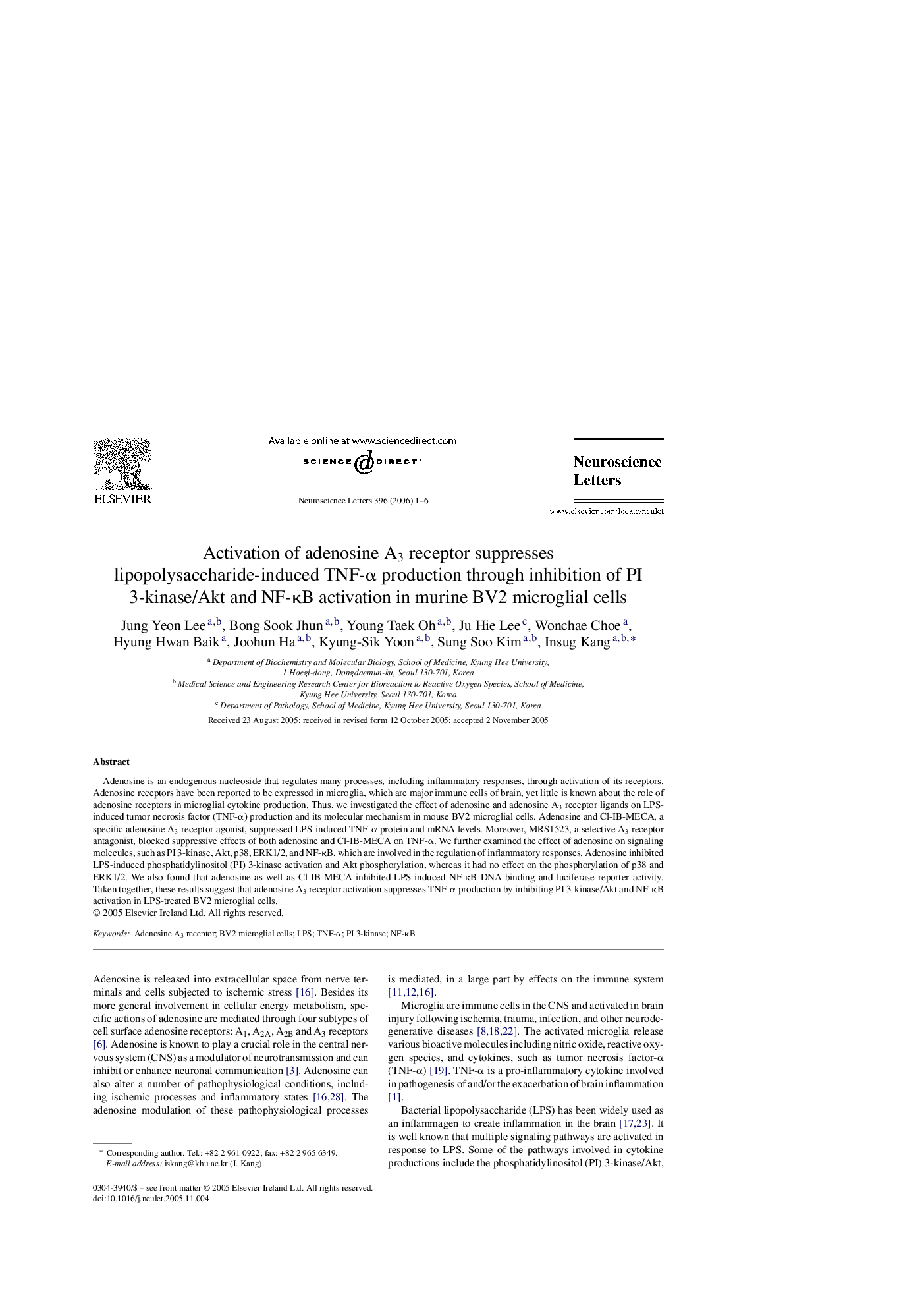| Article ID | Journal | Published Year | Pages | File Type |
|---|---|---|---|---|
| 4351012 | Neuroscience Letters | 2006 | 6 Pages |
Adenosine is an endogenous nucleoside that regulates many processes, including inflammatory responses, through activation of its receptors. Adenosine receptors have been reported to be expressed in microglia, which are major immune cells of brain, yet little is known about the role of adenosine receptors in microglial cytokine production. Thus, we investigated the effect of adenosine and adenosine A3 receptor ligands on LPS-induced tumor necrosis factor (TNF-α) production and its molecular mechanism in mouse BV2 microglial cells. Adenosine and Cl-IB-MECA, a specific adenosine A3 receptor agonist, suppressed LPS-induced TNF-α protein and mRNA levels. Moreover, MRS1523, a selective A3 receptor antagonist, blocked suppressive effects of both adenosine and Cl-IB-MECA on TNF-α. We further examined the effect of adenosine on signaling molecules, such as PI 3-kinase, Akt, p38, ERK1/2, and NF-κB, which are involved in the regulation of inflammatory responses. Adenosine inhibited LPS-induced phosphatidylinositol (PI) 3-kinase activation and Akt phosphorylation, whereas it had no effect on the phosphorylation of p38 and ERK1/2. We also found that adenosine as well as Cl-IB-MECA inhibited LPS-induced NF-κB DNA binding and luciferase reporter activity. Taken together, these results suggest that adenosine A3 receptor activation suppresses TNF-α production by inhibiting PI 3-kinase/Akt and NF-κB activation in LPS-treated BV2 microglial cells.
